Facelift in Cape Town
Search and Compare the Best Clinics and Doctors at the Lowest Prices for Facelift in Cape Town
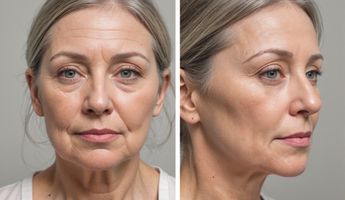
Find the best clinics for Facelift in Cape Town
With Medijump you can browse 5 facilities offering Facelift procedures in Cape Town. The cheapest price available is $5,808 in Cape Town
Facelift in South Africa
Price: $ 5,808
Facelift in Cape Town
Price: $ 5,808
Facelift in Johannesburg
Price: $ 6,141
Thailand offers the best prices Worldwide
Price: $ 28
From 18 verified reviews
Juliettash Stadler, 05 May 2020
My Son was admitted with a very rare autoimmune illness in April this year. The care he was given was superb Prof Dheda, Prof Louw and their team of specialists covered every possibility , diagnosed efficiently and treated effectively. There was time taken to explain everything. The Hospital Matron made allowances for me to spend as much as possible time with my son and also allowed for frequent visits from close family. Mr Daniel Mathew the Hospital General manager is very approachable and interested . The staff was friendly and helpful. Basically every one from reception through admin to ICU was friendly and helpful. I Highly recommend this hospital
From 36 verified reviews
Kim Adams, 30 March 2020
Overall I had a good experience.
Dr Dawid Potgieter, located in Syfred Douglas St, Cape Town, South Africa offers patients Facelift procedures among its total of 90 available procedures, across 1 different specialties. Currently, there's no pricing information for Facelift procedures at Dr Dawid Potgieter, as all prices are available on request only, whilst the national average price is approximately $6,135. All procedures and treatments are undertaken by the lead specialist at the Hospital, and they have multiple recognized accreditations, including: HPCSA - Health Professions Council of South AfricaDepartment of Health, Western CapeFCS(SA) - Fellowship of the College of Surgeons of South Africa
From 16 verified reviews
Rebecca O'Connor, 23 September 2020
Dr. Gideon Maresky is amazing. I underwent otoplasty and rhinoplasty procedures and couldn't have asked for a better experience. Everything ran very smoothly.
Dr Susan F Johnson, located in Syfred Douglas St, Cape Town, South Africa offers patients Facelift procedures among its total of 20 available procedures, across 1 different specialties. Currently, there's no pricing information for Facelift procedures at Dr Susan F Johnson, as all prices are available on request only, whilst the national average price is approximately $6,135. All procedures and treatments are undertaken by just a small team of specialists, with 2 in total at the Hospital, and they are accredited by HPCSA - Health Professions Council of South Africa
- Home
- South Africa
- Cape Town
Compare Before & After Photos of _procedure_photos.phpFacelift


Front view


Half-side view


Full-side view
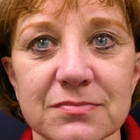
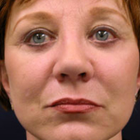
Front view

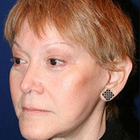
Half-side view
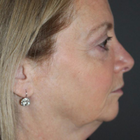
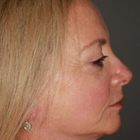
Full-side view
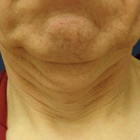
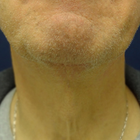
Front view
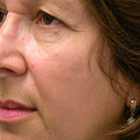
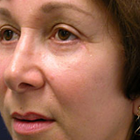
Half-side view
WHY US?
At Medijump, we're making medical easy. You can search, compare, discuss, and book your medical all in one place. We open the door to the best medical providers worldwide, saving you time and energy along the way, and it's all for FREE, no hidden fees, and no price markups guaranteed. So what are you waiting for?

Free

Best Price

Widest Selection

Risk-Free
What you need to know about Facelift in Cape Town

A facelift, also referred to as rhytidectomy, is a cosmetic surgery that aims to restore a more youthful facial appearance. It can reduce sagging or folds of skin on the cheeks, jawline, and other areas in the face that changes shape due to aging.
As we age, our skin loses their elasticity and become looser. Fat deposits also decrease in some areas and increase in others. This leads to sagging and wrinkles. With a facelift, these problems can be addressed by lifting and tightening the sagging facial tissue. The procedure may involve removing excess skin that’s causing “jowls”, smoothing out wrinkles or folds, and tightening facial tissue. It can also have a rejuvenating effect on the areas below the eyes and the deep lines from the corners of the mouth to the sides of the nose.
It is important to bear in mind that a facelift is not a treatment for creases around the nose, superficial wrinkles, and irregularities in skin color. It also cannot stop the aging process or change your fundamental appearance.
Although there are newer and less invasive facial rejuvenation procedure, a surgical facelift is still one of the most popular today. This is because the procedure offers the most dramatic results.
What is the cost of Facelift in Cape Town?
Many people take into account the cost of a Facelift in Cape Town very carefully because it differs greatly from one area or clinic to another. But the typical price normally includes the surgeon's fee, the facility fee, the cost of anaesthesia, and any required pre-operative diagnostics. The complexity of your case, the surgeon's experience, and his or her reputation all have a role in the procedure's ultimate cost, which is important to keep in mind. Remember that these expenses are an investment in your self-worth and personal fulfilment and could have a big impact on your quality of life.
What does a Facelift Procedure Involve?
In terms of aesthetics, your surgeon will recommend the best choice for your own comfort. You may
There are three types of incision used in a facelift, which depends on the degree of change you would like to see and the technique your surgeon will use.
- A traditional facelift incision starts at your temples in the hairline, continues around the ear and ends in behind your neck in the lower scalp. An incision may also be made under your chin to improve the look of the neck.
- A limited incision is shorter than traditional facelift incision. It starts in your hairline just above the ear, continues around the ear but does not extend to the lower scalp.
- Neck lift incisions begin in front of the earlobe, continues around your ear into the lower scalp. This type of incision addresses the sagging jowls, fat accumulation under the chin, and loose neck skin.
In general, your surgeon elevates the skin and tighten the underlying tissues and muscles after making an incision. Fat in your face and neck may be removed, sculpted, or redistributed. Then, the incision is stitched.
How Long Should I Stay in Cape Town for a Facelift Procedure?
You should be able to leave the hospital on the same day of the surgery if local anesthetic is used. However, if the surgery is done under general anesthetic, you may need to stay in the hospital for about 1 to 2 days. You should plan to stay in Cape Town for around 7 to 10 days following the surgery because you will have to attend follow-up checkups. During the checkups, your surgeon will monitor your healing and remove your stitches.
What's the Recovery Time for Facelift Procedures in Cape Town?
While recovering, it is beneficial to prop your head up and refrain from any heavy-duty tasks. Healthy eating habits and effective stress control can remarkably assist in your recuperation journey. A complete healing span could last for a few months, during which the puffiness slowly eases off and the cut marks become less noticeable. Diligently adhering to the post-surgery guidelines from your doctor and consistently showing up for all scheduled check-ups can contribute to a swift, seamless recovery.
Expect to experience bruising, swelling, and some discomfort for the first 3 to 5 days. You may be able to return to work and some light activities within 7 to 14 days, but avoid any vigorous activities for about 5 to 6 weeks. It may take 2 to 3 months until your face feels normal in terms of texture and sensibility.
What sort of Aftercare is Required for Facelift Procedures in Cape Town?
Your surgeon will provide detailed post-operative instruction. To avoid any complications and maximize the result, you need to follow all instructions closely. You may have to avoid any clothing that is pulled over the head, such as t-shirts and sweaters. You should also avoid using makeup and direct sun exposure for about three weeks, as well as coloring, bleaching, or perming your hair for six weeks following the surgery.
To maintain the results of your facelift, you need to avoid smoking, use sunblock, moisturize your face daily, maintain weight stability, follow a healthy diet plan, exercise regularly, and live a generally healthy lifestyle.
What's the Success Rate of Facelift Procedures in Cape Town?
Approximately 80% to 90% of people who had a facelift is reported to achieve a positive result after their procedure. However, although great results are expected after a facelift, there can be no guarantee. In some cases, you may need more than one surgery to achieve your desired result. To make sure your surgery is successful; you need to ensure your surgeon is skilled and experienced. You also have to follow your surgeon’s instructions, from the preparation to the aftercare.
Note that the results of a facelift are not permanent because no cosmetic procedure can stop aging. Your facial skin may begin to droop again as you age. The average facelift lasts between 7 and 10 years before you have aged enough to need additional work.
Are there Alternatives to Facelift Procedures in Cape Town?
If you do not want to (or cannot) undergo a facelift, you can opt for an alternative.
- Mini-facelift - a less invasive procedure that also aims to lift the wrinkles and sagging skin in the lower part of the face. Because it involves a smaller, s-shaped incision around the ear, it cannot address neck sagging or excess skin.
- Botox - it reduces the appearance of wrinkles and usually takes about 24 to 72 hours to take effect. A botox injection uses botulinum toxin to temporarily paralyze muscle activity.
- Fillers - unlike botox, fillers fill the line, crease, or the general facial area with different kinds of substances. These fillers can be used as “volumizers”, plumping and lifting your cheeks, jawline, and temple.
- Laser Skin Resurfacing - this works to give you a younger-looking facial skin by removing some skin layer by layer. Patients can get rid of scars, wrinkles, acne marks, and blotches.
- Ultherapy - this uses ultrasound to heat targeted tissue under the surface of your skin. The heat will then trigger the natural production of collagen. This procedure can be repeated 6 to 12 months because collagen usually takes very long to develop.
- LED - light-emitting diode therapy uses a variety of different colored lights to target various parts of your face. This is a pain-free procedure that treats acne, fine lines, wrinkles, pigmentations, acne scars, and rosacea.
What Should You Expect Before and After the Procedure
Before having the Facelift, you will meet with your surgeon to discuss your goals and what you expect to accomplish. Your medical history will be carefully reviewed at this meeting to ensure that the procedure is safe for you. Before the surgery, you might also need to get some routine health screenings to make sure you're in good health overall.
Expect to have bandages applied to your surgical wounds following the Facelift, and it's possible that a drain may be installed to collect extra fluid. Swelling and bruising are normal postoperative side effects, but these should progressively go away over a few weeks.
What are the Potential Risks of Facelift?
As with other surgical procedures, a facelift can carry some possible risks and complications, which may include:
- Hematoma
- Scarring and skin loss
- Hair loss
- Nerve injury (temporary or permanent changes in facial sensation or difficulties in moving facial muscles)
Some of these risks can be managed with appropriate care and medication. However, you need to be aware of the long term and permanent complications. While they are rare, they may alter your appearance significantly.
Whilst the information presented here has been accurately sourced and verified by a medical professional for its accuracy, it is still advised to consult with your doctor before pursuing a medical treatment at one of the listed medical providers
No Time?
Tell us what you're looking for and we'll reachout to the top clinics all at once
Enquire Now

Popular Procedures in Cape Town
Prices Start From $108

Prices Start From $1,945

Prices Start From $672

Prices Start From $275

Prices Start From $108

Recommended Medical Centers in Cape Town for Facelift

- Interpreter services
- Translation service
- Religious facilities
- Medical records transfer
- Medical travel insurance
- Health insurance coordination
- TV in the room
- Safe in the room
- Phone in the room
- Private rooms for patients available

- Interpreter services
- Translation service
- Religious facilities
- Medical records transfer
- Medical travel insurance
- Health insurance coordination
- TV in the room
- Safe in the room
- Phone in the room
- Private rooms for patients available

- Interpreter services
- Translation service
- Religious facilities
- Medical records transfer
- Medical travel insurance
- Health insurance coordination
- TV in the room
- Safe in the room
- Phone in the room
- Private rooms for patients available

- Interpreter services
- Translation service
- Religious facilities
- Medical records transfer
- Medical travel insurance
- Health insurance coordination
- TV in the room
- Safe in the room
- Phone in the room
- Private rooms for patients available

- Interpreter services
- Translation service
- Religious facilities
- Medical records transfer
- Medical travel insurance
- Health insurance coordination
- TV in the room
- Safe in the room
- Phone in the room
- Private rooms for patients available

- Interpreter services
- Translation service
- Religious facilities
- Medical records transfer
- Medical travel insurance
- Health insurance coordination
- TV in the room
- Safe in the room
- Phone in the room
- Private rooms for patients available

- Interpreter services
- Translation service
- Religious facilities
- Medical records transfer
- Medical travel insurance
- Health insurance coordination
- TV in the room
- Safe in the room
- Phone in the room
- Private rooms for patients available

- Interpreter services
- Translation service
- Religious facilities
- Medical records transfer
- Medical travel insurance
- Health insurance coordination
- TV in the room
- Safe in the room
- Phone in the room
- Private rooms for patients available

- Interpreter services
- Translation service
- Religious facilities
- Medical records transfer
- Medical travel insurance
- Health insurance coordination
- TV in the room
- Safe in the room
- Phone in the room
- Private rooms for patients available

- Interpreter services
- Translation service
- Religious facilities
- Medical records transfer
- Medical travel insurance
- Health insurance coordination
- TV in the room
- Safe in the room
- Phone in the room
- Private rooms for patients available
Facelift in and around Cape Town
About Cape Town
Cape Town is the legislative capital of South Africa and is also known as the Mother City. It is the oldest city in the country and home to the Parliament of South Africa and is a major destination for immigrants and expatriates, making it one of the most multicultural cities in the world. Located on the shore of Table Bay, the city is known for its harbor, natural setting, as well as famous attractions and many tourists, visit to enjoy Table Mountain and Cape Point.
Recently, tourists also come to the city for its medical tourism. Many groundbreaking procedures and medical research in South Africa, such as the world’s first penile transplant, have put Cape Town under the radar of medical tourists from all around the globe. Thanks to its world-class healthcare and world-renowned medical practitioners, more and more people now prefer Cape Town as their medical destination. The healthcare in the city is among the best on the African continent. Other reasons such as shorter waiting times for surgeries, state-of-the-art equipment, and affordable healthcare compared to Europe and the United States, and English-speaking doctors.
Popular Areas in Cape Town
Cape Town is a natural beauty that offers a wide range of things to do and see. From culture, food, art, to nature. Listed below are some of the more popular places in the city:
- Table Mountain is one of the New 7 Wonders of Nature and it is easy to see why. The iconic mountain makes an amazing backdrop to Cape Town. The level plateau is about 3 kilometers from side to side with remarkable cliffs on the edges. The peak offers an amazing view of the city. Tourists can choose to board the cable car or discover its beautiful nature by hiking.
- Cape of Good Hope is situated within the Table Mountain National Park. The area has a mix of bio-diversity and wonderful beauty that attracts thousands of tourists to visit. There are around 250 species of birds spotted in the area. Hiking and cycling through it is the best way to discover its true majesty. Tourists can picnic and birdwatch in isolated beaches.
- Kirstenbosch National Botanical Garden is one of the most incredible botanic gardens in the world. Nestled at the eastern foot of Table Mountain, it features a natural forest and fynbos flora and sprawls around 528 hectares. The garden displays a collection of diverse South African plants with seasonal festivals such as musical sunset concerts during summer and craft markets on the last Sunday of every month.
- Groot Constantia is the oldest wine-producing estate in South Africa, located in the suburb of Constantia. The estate consists of a museum, restaurants, tasting room, and cellars. The museum was built in Cape Dutch architecture style, further into the estate; tourists will find the free orientation center which provides an overview of Groot Constantia history. Tourists can also tour the original wine cellar, have a wine tasting, or a wine and chocolate pairing.
- Boulders Penguin Colony is located in Boulder Beach on the outskirts of Simon’s Town. The beach boasts fine white sand with pristine waters and endangered African penguin colonies. Tourists can set up camp, see the penguins up close, and even swim along with the magnificent aquatic birds. Observing the penguins socializing and playing in the waves is a perfect way to enjoy your travel in Cape Town.
Weather and Climate in Cape Town
Cape Town enjoys a warm Mediterranean climate. The summer is dry and warm, lasting from early December to March. The average maximum temperature during this season is around 26 °C, and the minimum is 16 °C. The Berg Wind that arrives from February to early March can make the city uncomfortably hot for a couple of weeks.
The winter starts in June and ends in August and the season is characterized by mild and wet weather. The city also experiences strong north-westerly winds during this season. The average temperature ranges between 8.5 °C at the lowest and 18 °C at the highest.
Getting Around in Cape Town
The primary airport that serves Cape Town is the Cape Town International Airport and it is the second busiest airport in South Africa and the fifth busiest in Africa. The airport serves direct domestic flights to major cities and several small centers in the country. It also connects the country with major cities in Africa, Europe, the Middle East, and Asia. It is the hub for South African Express as well as budget airlines such as Mango and FlySafair.
There are several types of taxis: the metered taxis, Rikkis Taxis, and minibus taxis. The metered taxis can be a little expensive but are usually comfortable. Tourists can order one via a phone call or from one of the city’s official taxi stands. Tourists should always choose reputable taxi companies such as Marine Taxi, Unicab, Excite, and SA Cab.
Rikkis Taxis are painted yellow and very popular and these taxis run on a fixed fare rather than metered, so they are a little more affordable than metered taxis and a good option if you are traveling on longer journeys. Other than the Rikkis Taxis, tourists can choose the minibus taxis which are perfect for adventurous foreign travelers. The minibus taxis can be found practically everywhere and are very cheap, however, you will need to know exactly where your destination is and tell the driver when to stop. Another travel option is the MyCiTi bus, a modernized and effective bus system.
Tourist Visas in Cape Town
There are more than 60 countries listed in the visa exemption agreements, which means the citizens of these countries can stay in South Africa for up to 90 days. Other countries not listed must obtain a valid visa to enter the country. A Medical Treatment Visa is available for medical tourists. Note that all visitors must hold a passport valid for at least 30 days after the expiration of their intended visit.
Additional Information
- Local Currency: South African Rand (ZAR) is the official currency and 1 USD converts to 14 ZAR.
- Money & Payments: Tourists can find ATMs almost everywhere around the city, but you should avoid ATMs in secluded places, especially at night. Credit cards are accepted in established restaurants, hotels, and shops. It is always better to carry some cash because smaller food places are cash-only. Tipping is expected here.
- Local Language: The most common languages in the city are English, Afrikaans, and Xhosa with Afrikaans as the most widely spoken home language.
- Local Culture and Religion: The population follows Christianity, Islam, Judaism, and several other religions.
- Public Holidays: There are 12 official public holidays in Cape Town, including New Year’s Day, Freedom Day, and Christmas.
Popular Searches
- Plastic Surgery in Thailand
- Dental Implants in Thailand
- Hair Transplant in Thailand
- Breast Augmentation Thailand
- Gastric Sleeve in Thailand
- Gender Reassignment Surgery in Thailand
- Laser Hair Removal in Bangkok
- Botox in Bangkok
- Dermatology in Bangkok
- Breast Augmentation in Bangkok
- Coolsculpting in Bangkok
- Veneers in Turkey
- Hair Transplant in Turkey
- Rhinoplasty in Turkey
- Stem Cell Therapy in Mexico
- Rhinoplasty in Mexico
- Liposuction in Mexico
- Coolsculpting in Tijuana
- Rhinoplasty in Korea
- Scar Removal in Korea
- Gastric Sleeve in Turkey
- Bone Marrow Transplant in India
- Invisalign in Malaysia
- Plastic Surgery in the Dominican Republic
- Tummy Tuck in the Dominican Republic
- Plastic and Cosmetic Surgery in Poland
- Rhinoplasty in Poland
- Hair Implant in Poland
- Dental Implants in Poland
- IVF in Turkey



